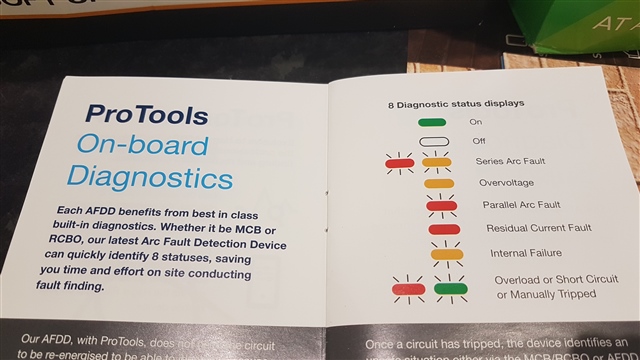Just had a look at the brochure for the new Hager AFDD with a visual status display and Bluetooth to allow interaction with a mobile phone for interrogation and software updates.
Rather different to a piece of fuse wire.
hager.com/.../afdd-press-release

